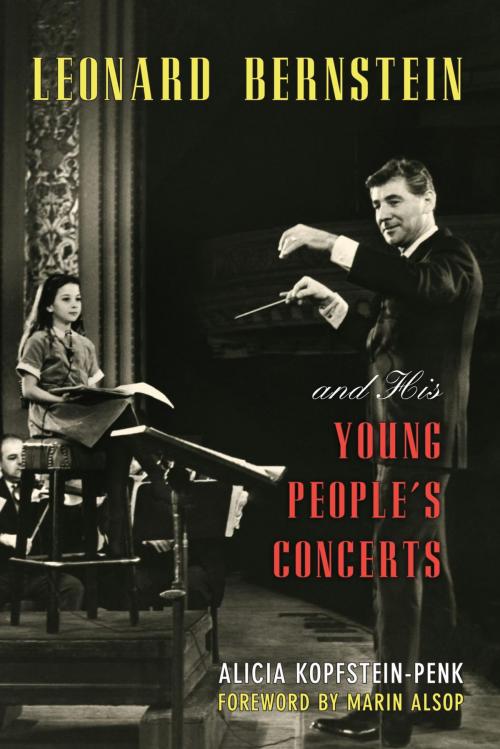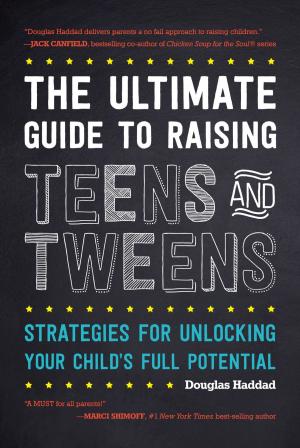Leonard Bernstein and His Young People's Concerts
Nonfiction, Entertainment, Music, Music Styles, Classical & Opera, Classical| Author: | Alicia Kopfstein-Penk | ISBN: | 9780810888500 |
| Publisher: | Rowman & Littlefield Publishers | Publication: | January 22, 2015 |
| Imprint: | Rowman & Littlefield Publishers | Language: | English |
| Author: | Alicia Kopfstein-Penk |
| ISBN: | 9780810888500 |
| Publisher: | Rowman & Littlefield Publishers |
| Publication: | January 22, 2015 |
| Imprint: | Rowman & Littlefield Publishers |
| Language: | English |
Leonard Bernstein touched millions of lives as composer, conductor, teacher, and activist. He frequently visited homes around the world through the medium of television, particularly through his fifty-three award-winning Young People’s Concerts (1958-1972), which at their height were seen by nearly ten million in over forty countries. Originally designed for young viewers but equally attractive to eager adults, Bernstein’s brilliance as a teacher shined brightly in his televised presentations. And yet, despite the light touch of the “maestro,” the innocence of his audience, and the joyousness of each show’s topic, the turbulence of the times would peek through.
In this first in-depth look at the series, Alicia Kopfstein-Penk’s Leonard Bernstein and His Young People’s Concerts illustrates how the cultural, social, political, and musical upheavals of the long sixties impacted Bernstein’s life and his Young People’s Concerts. Responding to trends in corporate sponsorship, censorship, and arts programming from the Golden Age of Television into the 1970s, the Young People’s Concerts would show the impact of and reflect the social and cultural politics of the Cold War, Vietnam, the Civil Rights and Women’s Movements, and the Counterculture. Bernstein cheerfully bridged classical and popular tastes, juxtaposing the Beatles with Mozart even as he offered personal, televised pleas for peace and unity. At the same time, the concerts reflect Bernstein’s troubled relationship as a professional musician with the dominance of atonality and his quest to nurture American music.
Anyone who enjoys the oeuvre of Leonard Bernstein, has watched his Young People’s Concerts, or is passionate about the history of the long sixties will find in Leonard Bernstein and His Young People’s Concerts a story of all three captured in this monumental study.
Leonard Bernstein touched millions of lives as composer, conductor, teacher, and activist. He frequently visited homes around the world through the medium of television, particularly through his fifty-three award-winning Young People’s Concerts (1958-1972), which at their height were seen by nearly ten million in over forty countries. Originally designed for young viewers but equally attractive to eager adults, Bernstein’s brilliance as a teacher shined brightly in his televised presentations. And yet, despite the light touch of the “maestro,” the innocence of his audience, and the joyousness of each show’s topic, the turbulence of the times would peek through.
In this first in-depth look at the series, Alicia Kopfstein-Penk’s Leonard Bernstein and His Young People’s Concerts illustrates how the cultural, social, political, and musical upheavals of the long sixties impacted Bernstein’s life and his Young People’s Concerts. Responding to trends in corporate sponsorship, censorship, and arts programming from the Golden Age of Television into the 1970s, the Young People’s Concerts would show the impact of and reflect the social and cultural politics of the Cold War, Vietnam, the Civil Rights and Women’s Movements, and the Counterculture. Bernstein cheerfully bridged classical and popular tastes, juxtaposing the Beatles with Mozart even as he offered personal, televised pleas for peace and unity. At the same time, the concerts reflect Bernstein’s troubled relationship as a professional musician with the dominance of atonality and his quest to nurture American music.
Anyone who enjoys the oeuvre of Leonard Bernstein, has watched his Young People’s Concerts, or is passionate about the history of the long sixties will find in Leonard Bernstein and His Young People’s Concerts a story of all three captured in this monumental study.















